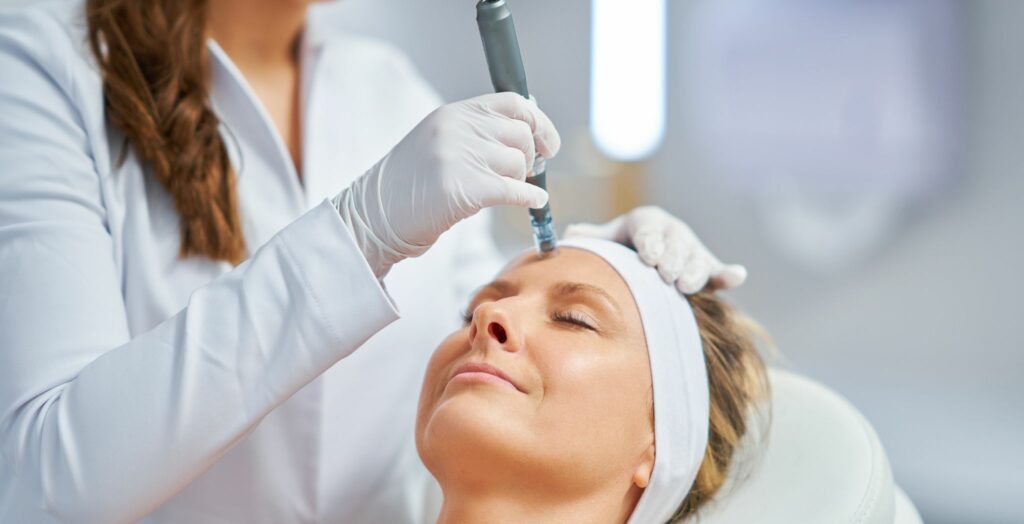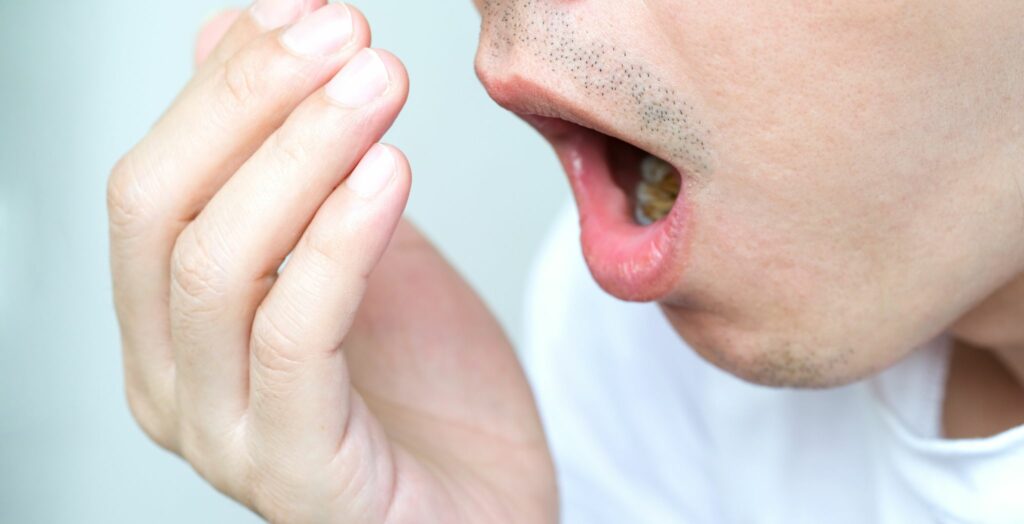Do you get butterflies in your stomach just thinking about a dental appointment? Does the sound of the drill send shivers down your spine? You’re not alone! Many people experience dental anxiety, and sedation dentistry offers a safe and effective way to help overcome those fears and get the dental care they need.
But what if there was a way to make your dental visits calm, comfortable, and even a little bit relaxing? That’s exactly what sedation dentistry is designed to do — making your experience stress-free and more manageable.
What is Sedation Dentistry?
Imagine this: you’re at the dentist, but you feel completely at ease. You might even feel a bit sleepy or dreamy. That’s the magic of sedation dentistry! Simply put, sedation dentistry uses safe medications to help you relax during dental procedures. It’s not about putting you to sleep completely (though you might doze off sometimes), but rather about making you feel calm and comfortable, so that your dental experience is stress-free.
Think of it as a helping hand for your nerves. It allows your dentist, whether they’re a trusted dentist in Penrith or a friendly dentist Cranebrook, to work efficiently while you remain relaxed and cooperative.
Different Types of Sedation Used in Dentistry
Just like there are different types of coffee, there are different types of sedation in dentistry, each designed for different levels of anxiety and types of procedures. Let’s take a look at the most common ones:
- Nitrous Oxide (Laughing Gas): This is probably the most well-known type of sedation. You inhale a mixture of nitrous oxide and oxygen through a small mask placed over your nose. It works quickly to create a feeling of euphoria and relaxation. The best part? The effects wear off very quickly once the mask is removed, so you can often drive yourself home after your appointment. It’s fantastic for mild anxiety or shorter procedures.
- Oral Sedation: This involves taking a pill, usually about an hour before your appointment. The medication helps you feel drowsy and relaxed. You’ll be awake and able to respond to your dentist, but you’ll feel much less anxious and may not remember much of the procedure afterwards. Because the effects last longer, you’ll need someone to drive you to and from your appointment if you opt for oral sedation. This is a good option for moderate anxiety or slightly longer procedures.
- IV Sedation (Intravenous Sedation): This type of sedation is administered directly into your bloodstream through a vein, typically in your arm. It works very quickly, allowing the dentist to control the level of sedation more precisely. With IV sedation, you’ll be in a “twilight sleep” – meaning you’ll be deeply relaxed and probably won’t remember anything about the procedure. You’ll definitely need someone to drive you home after IV sedation. This is often chosen for more complex procedures or for individuals with severe dental anxiety.
- General Anesthesia: While not strictly “sedation dentistry” in the same way as the others, general anesthesia is a deeper form of sedation where you are completely unconscious during the procedure. This is typically reserved for very complex surgeries or for patients with extreme dental phobia or special needs. It’s usually administered by an anesthesiologist in a hospital or specialised dental clinic.
Your dentist will discuss which type of sedation is best for you based on your anxiety level, your medical history, and the procedure you’re having.
Benefits of Sedation Dentistry
The advantages of opting for sedation dentistry are numerous and can truly transform your dental experience:
- Reduces Dental Anxiety and Fear: This is a significant benefit. If the thought of going to the dentist makes you anxious, sedation can help you overcome that fear and get the treatment you need.
- Allows for More Procedures in One Visit: Since you’re relaxed, your dentist may be able to complete more work in a single appointment, saving you time and the need for extra trips.
- Minimises Discomfort and Pain: While local anaesthetic is still used to numb the area, sedation helps you feel more comfortable and less aware of any sensations during the procedure.
- Helps Patients with Strong Gag Reflexes: If you have a sensitive gag reflex, sedation can help suppress it, making dental work much easier.
- Ideal for Sensitive Teeth: If you have very sensitive teeth, sedation can make the experience much more tolerable.
- No More Postponing Treatment: For many, dental anxiety leads to avoiding necessary treatment. Sedation dentistry removes this barrier, allowing you to maintain your oral health.
- Creates Positive Dental Experiences: Over time, positive experiences with sedation dentistry can help to reduce your overall dental anxiety, making future visits less daunting even without sedation.
Who Can Benefit from Sedation Dentistry?
Sedation dentistry isn’t just for those with extreme phobias. Many different people can benefit:
- Individuals with Moderate to Severe Dental Anxiety: This is the most obvious group! If you dread dental visits, sedation is a game-changer.
- People with a Strong Gag Reflex: Sedation can make a huge difference for these patients, making procedures like impressions or even just examinations much more bearable.
- Those Who Have Difficulty Getting Numb: Some people have a higher tolerance to local anaesthetics, and sedation can help them relax enough for the numbing to take effect more easily.
- Patients with Very Sensitive Teeth: The discomfort associated with sensitive teeth can be significantly reduced with sedation.
- Children Who Are Anxious or Have Special Needs: In some cases, gentle sedation can help children cooperate better during dental procedures, ensuring they receive the care they need in a calm environment.
- Anyone Undergoing Lengthy or Complex Procedures: If you’re having multiple fillings, extractions, or other extensive work, sedation can make the experience much more comfortable and less tiring.
- People with Conditions that Make Sitting Still Difficult: For example, individuals with certain medical conditions or cognitive impairments may find it easier to receive dental care with sedation.
Safety of Sedation Dentistry
One of the most frequently asked questions is, “Is sedation dentistry safe?” The answer is a resounding YES when administered by a qualified and experienced dental professional.
Before recommending any type of sedation, your dentist will conduct a thorough review of your medical history. They’ll ask about any medications you’re taking, any existing health conditions, and any allergies you have. This is crucial to ensure that the chosen sedation method is safe and appropriate for you.
During your procedure, your dental team will closely monitor your vital signs, such as your heart rate, blood pressure, and oxygen levels, to ensure your safety and well-being. Modern sedation techniques and equipment are designed with patient safety as the top priority.
It’s important to choose a dental practice that has experience in providing sedation dentistry, whether it’s a well-regarded dentist in Penrith or a trusted dentist Cranebrook. Don’t hesitate to ask your dentist about their experience and qualifications in administering sedation.
How Sedation Dentistry Works
The exact process depends on the type of sedation chosen, but generally, here’s what happens:
- Before Your Appointment: You’ll have a consultation with your dentist to discuss your anxiety levels, medical history, and the procedure planned. This is when you’ll decide together on the most suitable type of sedation. If you’re having oral or IV sedation, you’ll receive specific instructions, such as when to stop eating and drinking, and who needs to drive you.
- During Your Appointment:
- Nitrous Oxide: A small mask is placed over your nose, and you’ll simply breathe normally. You’ll start to feel relaxed within minutes.
- Oral Sedation: You’ll take the prescribed pill as instructed, usually an hour before your appointment. You’ll feel drowsy and calm as the medication takes effect.
- IV Sedation: The medication is administered through a small needle in your arm. You’ll feel the effects very quickly, entering a state of deep relaxation. Throughout the procedure, your dental team will monitor you closely.
- After Your Treatment:
- Nitrous Oxide: The effects wear off almost immediately once the gas is stopped. You’ll feel normal and can usually resume your day.
- Oral and IV Sedation: The effects will take longer to wear off. You’ll need someone to drive you home, and you should plan to rest for the remainder of the day. You might feel a bit groggy or sleepy. Your dentist will provide detailed post-sedation instructions.
What to Expect Before, During, and After Treatment
Let’s break down the typical experience:
Before:
- Consultation: Discuss your fears, medical history, and the procedure with your dentist to ensure a thorough understanding.
- Instructions: Follow any specific instructions provided by your dentist regarding food, drink, and medications before your appointment.
- Arrangements: If you’re having oral or IV sedation, arrange for a responsible adult to drive you to and from your appointment and stay with you for a few hours afterwards.
During:
- Welcome: You’ll be greeted by friendly staff who understand your concerns.
- Sedation Administration: The chosen sedation method will be administered.
- Relaxation: You’ll gradually feel more relaxed, calm, and perhaps drowsy. You might not remember much of the procedure.
- Monitoring: Your vital signs will be continuously monitored by the dental team.
- Dental Work: Your dentist will proceed with the planned treatment while you are comfortable.
After:
- Recovery: The effects of the sedation will gradually wear off.
- Discharge: Once you are deemed stable, you’ll be discharged with post-operative instructions.
- Rest: Plan to rest for the remainder of the day, especially after oral or IV sedation. Avoid driving, operating machinery, or making important decisions.
- Follow-up: Your dentist may schedule a follow-up call or appointment to check on your recovery.
Common Concerns and Misconceptions About Sedation Dentistry
It’s natural to have questions, and there are a few common misunderstandings about sedation dentistry:
- “I’ll be completely unconscious.” Not necessarily! With nitrous oxide and oral sedation, you’ll be awake and able to respond, just very relaxed. IV sedation often puts you into a “twilight sleep” where you might doze off and won’t remember the procedure.
- “It’s only for extreme cases.” While it’s excellent for severe anxiety, sedation dentistry can benefit anyone who feels a bit nervous or wants a more comfortable experience.
- “It’s dangerous.” When administered by a qualified dentist who has thoroughly reviewed your medical history and monitors you throughout the procedure, sedation dentistry is very safe.
- “I’ll be judged for my anxiety.” Absolutely not! Dental professionals understand that dental anxiety is very common and are there to help you, not judge you.
- “I won’t be able to communicate.” Even with deeper sedation, your dentist can usually communicate with you, and you can respond to their prompts.
Conclusion
Don’t let dental anxiety stand between you and a healthy, beautiful smile. Sedation dentistry offers a fantastic solution, transforming potentially stressful appointments into calm, comfortable experiences. Whether you need a simple check-up or a more involved procedure, exploring the options for sedation with your dentist can make all the difference.
Imagine walking into your next dental appointment feeling relaxed and confident, knowing that your comfort is a top priority. With safe and effective sedation options available, there’s no reason to postpone your dental care any longer.
Ready to Experience Stress-free Dentistry?
If you’re in the Penrith or Cranebrook area, don’t hesitate to contact a local dentist at Cranebrook Dental today to discuss whether sedation dentistry is right for you.
Take the first step towards a calmer, more comfortable dental journey and reclaim your oral health! Your smile will thank you for it.



